Pope Francis: A Humble Shepherd of the Poor, the Immigrant, and the Conscience of a Changing Church
By Brian Figeroux, Esq. | Editorial credit: Alessia Pierdomenico / shutterstock.com
A heartfelt tribute to Pope Francis — a humble leader who championed the poor, defended immigrants, called for moral leadership, reformed the Catholic Church, and guided it closer to God’s true vision for His people.
In March 2013, the world witnessed a historic moment as white smoke curled into the Roman sky, announcing the election of Jorge Mario Bergoglio — the first pope from the Americas, the first Jesuit pope, and the first to choose the name Francis. It was a name that signaled from the very first moment a papacy rooted in humility, compassion, and a radical love for the least among us.
Pope Francis came not as a monarch, but as a servant. His vision was clear: a “poor Church for the poor.” In an age marred by widening inequality, social fragmentation, and moral confusion, Francis emerged as a voice not of condemnation, but of hope and challenge. Over the past decade, he has steadfastly advocated for the poor, embraced immigrants, called businesses and politicians to moral renewal, and led a wounded Catholic Church toward healing and authenticity.
This tribute is a reflection on Pope Francis’ profound impact — not only within the Church but across the entire human family — and how his leadership invites all of us to embody God’s mercy more fully in a broken world.
Champion for the Poor
Pope Francis’ passionate concern for the poor is not a political stance — it is a profound spiritual calling shaped by his own life experiences. Raised in Buenos Aires amid economic hardship and social unrest, young Jorge Bergoglio saw firsthand the crushing weight of poverty and exclusion. These early experiences would leave an indelible mark on his heart, guiding his future as priest, bishop, and ultimately pope.
From the first days of his pontificate, Francis made it clear: the poor are at the center of the Gospel. In a world where wealth often equates to worth, he preached that the poor are not a burden but a treasure. “The poor have much to teach us,” he declared, “We are called to find Christ in them, to lend our voice to their causes, but also to be their friends.”
His gestures spoke as loudly as his words. He eschewed the lavish papal apartments for a modest room in the Casa Santa Marta guesthouse. He celebrated Masses with the homeless, washed the feet of prisoners and refugees on Holy Thursday, and opened clinics and showers for the homeless right next to St. Peter’s Basilica.
Pope Francis did not merely speak about poverty; he embodied solidarity with the poor in his daily life. He challenged the Church and the world to see beyond material wealth, to understand that true richness lies in love, community, and compassion. In doing so, he became a global conscience, reminding us that the measure of a society — and of a Church — is how it treats its most vulnerable members.
Advocate for Immigrants and Refugees
Few issues have revealed Pope Francis’ heart more clearly than his defense of immigrants and refugees. At a time when walls were being built and xenophobia was rising, Francis chose to stand firmly with those who had no nation to call home.
His first pastoral trip outside Rome as pope was to the tiny Italian island of Lampedusa — a tragic symbol of migrant deaths in the Mediterranean Sea. There, he wept with survivors and mourned the countless lives lost to indifference. “The globalization of indifference,” he warned, “has taken from us the ability to weep.”
Francis consistently called attention to the human dignity of migrants, reminding the world that every person forced to flee their home is a child of God. He urged nations, particularly the United States during his visit to Congress in 2015, to welcome the stranger, protect families, and uphold the sacredness of human life regardless of nationality or status.
Even amid political backlash, Francis did not flinch. He visited refugee camps in Greece, bringing back 12 Muslim refugees to live in the Vatican. He spoke out against the cruel separation of migrant families and lamented the suffering at borders hardened by fear.
His actions were a living parable, challenging Christians to remember that Jesus himself was a refugee, born into a world that had no room for Him. In championing immigrants, Francis called the Church — and the world — back to its most basic vocation: to love without borders.
Related Article:
Voice for Moral Leadership in Business and Politics
In a world often dominated by power and profit, Pope Francis dared to ask a different question: How can our economies and politics better serve human dignity?
His landmark encyclicals, Laudato Si’ (On Care for Our Common Home) and Fratelli Tutti (On Fraternity and Social Friendship), cut through political divisions and spoke directly to the human conscience. Francis warned that “an economy that kills” — one that prioritizes profit over people — is incompatible with the Gospel.
He challenged corporate leaders to consider the ethical consequences of their actions, urging them to create jobs, protect the environment, and care for the marginalized. Likewise, he called on politicians to move beyond narrow self-interest and ideological battles to serve the common good.
Francis’ leadership has reminded the world that morality is not an optional accessory to business and politics — it is their very foundation. His vision is not one of utopia, but of responsibility: a deep, prayerful commitment to ensuring that human lives, especially the vulnerable, are never sacrificed on the altar of greed or ambition.
Reformer and Healer within the Catholic Church
Pope Francis inherited a Church wounded by scandal and weakened by distrust. Yet he did not shrink from the painful work of reform. Instead, he embraced it with the heart of a physician committed to healing rather than hiding wounds.
He made transparency and accountability a priority, especially concerning the heartbreaking sexual abuse crisis. He met with survivors, listened to their stories, and implemented new protocols to hold bishops and clergy accountable. Although the road remains long and difficult, under Francis’ leadership the Church has taken real steps toward purification and justice.
Financial reform was another urgent need. Francis launched investigations into Vatican finances, sought to root out corruption, and pushed for greater oversight and transparency. Though often facing fierce internal resistance, he remained steadfast, believing that the credibility of the Church depended on its commitment to integrity.
Beyond administrative reforms, Francis sought to heal deeper spiritual wounds — the arrogance of clericalism, the exclusion of those on society’s margins, the fear of change. He has called the Church to be a “field hospital” for the wounded, not a fortress for the perfect.
In every step, Pope Francis’ reform efforts have been animated by the belief that the Church must embody the mercy of Christ, offering not judgment, but healing love.
A Church for All, Not Just the Wealthy
Throughout his papacy, Pope Francis has worked tirelessly to shift the Church’s posture from privilege to service, from exclusion to embrace. He reminded the faithful that the Gospel is not the property of an elite few but the good news for all people — especially the poor, the broken, and the forgotten.
Through the Synod on Synodality, Francis has promoted a more listening, participatory Church where the voice of every baptized person matters. He has opened dialogue on once-taboo topics, inviting deeper discernment rather than quick condemnation.
The Church under Francis has increasingly reflected God’s universal love: a Church that walks with sinners, embraces those who have felt alienated, and offers a home for the restless heart. His emphasis on mercy over judgment, encounter over exclusion, is slowly transforming the heart of Catholicism into a truer reflection of Christ’s love.
This evolution is not complete. It is a journey, one that Francis himself has acknowledged must continue beyond his lifetime. But under his leadership, the Church has taken critical steps toward being not an institution for the privileged few, but a home for all of God’s children.
Legacy
Pope Francis has not merely spoken of love, mercy, justice, and reform — he has lived them, often at great personal cost. In a world desperately in need of authentic leadership, he has been a beacon of humility, compassion, and courage.
His legacy will not be measured simply by documents or decrees, but by the countless lives he has touched — the poor who have found dignity, the immigrant who has found welcome, the disillusioned who have found hope in the Church once more.
In Pope Francis, we see the face of a shepherd who smells of his sheep, a servant who sits at the feet of the suffering, a leader who points beyond himself to the limitless mercy of God.
As he often reminds us: “Who am I to judge?”
Instead, he invites us — as individuals, as communities, and as a Church — to judge ourselves by how deeply we love.
In gratitude, we honor Pope Francis — a humble servant of God’s people, a courageous reformer, and a living witness that, indeed, the Church can evolve to better reflect the heart of the Gospel.
- “The poor have much to teach us. We are called to find Christ in them.” — Pope Francis
- “Pope Francis did not merely speak about poverty; he embodied solidarity with the poor in his daily life.”
- “In championing immigrants, Francis called the Church — and the world — back to its most basic vocation: to love without borders.”
- “Morality is not an optional accessory to business and politics — it is their very foundation.”
- “The Church must be a field hospital for the wounded, not a fortress for the perfect.”
- “In Pope Francis, we see a shepherd who smells of his sheep, a leader who points beyond himself to the limitless mercy of God.”

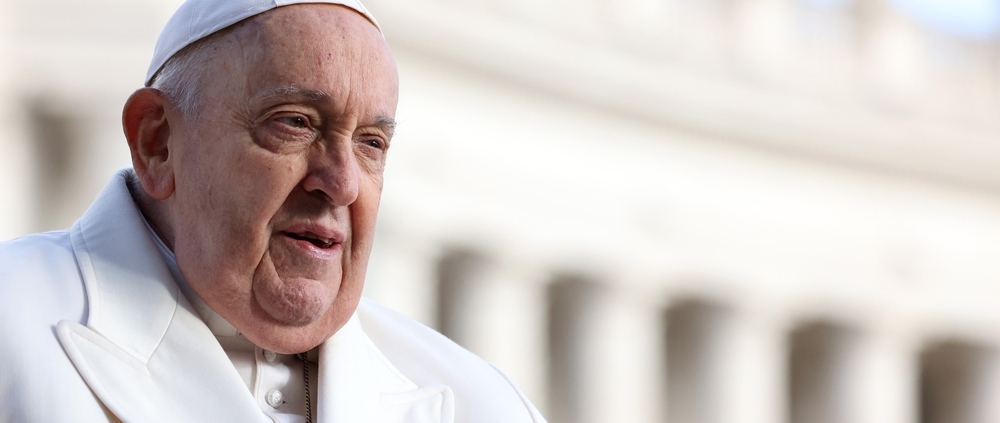
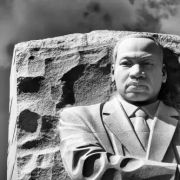
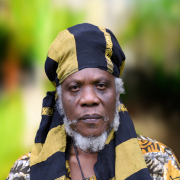
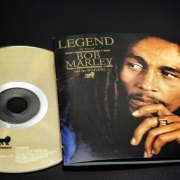

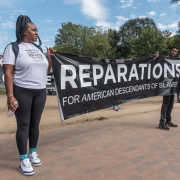


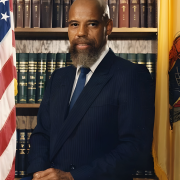


Leave a Reply
Want to join the discussion?Feel free to contribute!